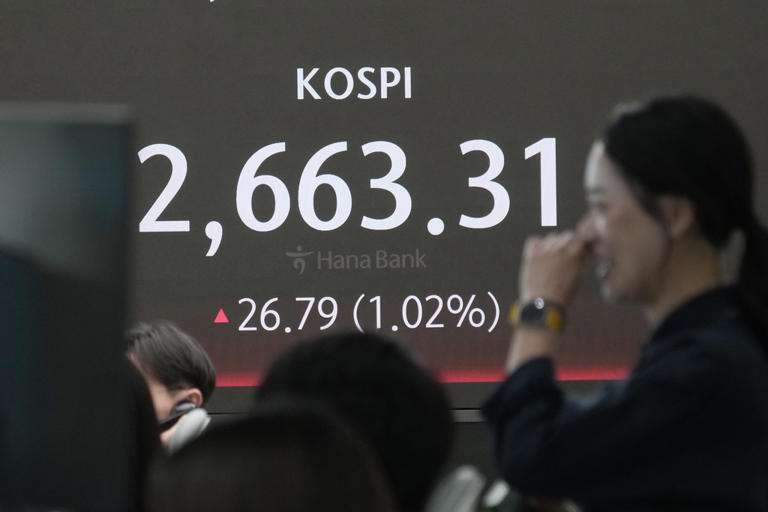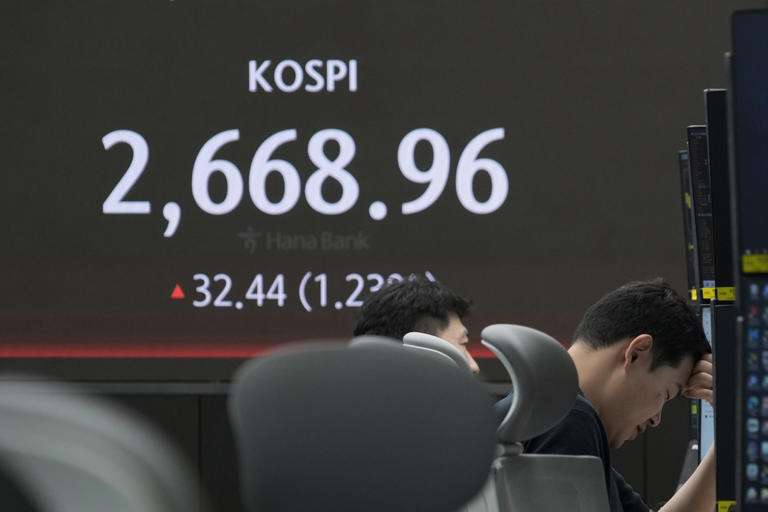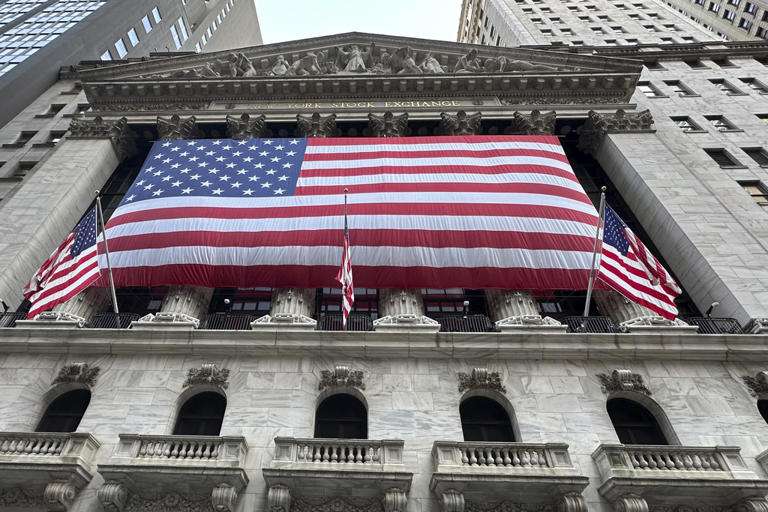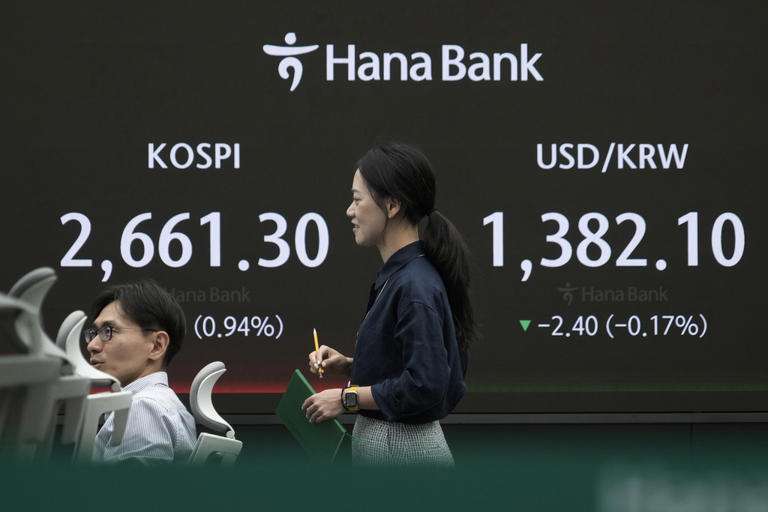Asian stock markets opened June with significant gains on Monday, as positive news about inflation in the U.S. drove a rally on Wall Street. Hong Kong’s Hang Seng led the region’s surge, jumping 2.7% to 18,560.98, while the Shanghai Composite index rose 0.3% to 3,095.63. Tokyo’s Nikkei 225 advanced 0.9% to 38,849.65, and the Kospi in Seoul surged 1.9% to 2,687.11. Australia’s S&P/ASX 200 climbed 0.7% to 7,756.80, and Taiwan’s Taiex was up 1.9%. On Friday, the S&P 500 rose 0.8% to close its sixth winning month in the last seven, ending at 5,277.51. The Dow jumped 1.5% to 38,686.32, while the Nasdaq slipped less than 0.1% to 16,735.02. Gap, a retailer, experienced one of the market’s biggest gains, soaring 28.6% after reporting stronger profit and revenue for the latest quarter than analysts had expected. The company also raised its forecasts for sales and profitability this year, despite the uncertain economic outlook.
Stocks received a boost as Treasury yields in the bond market eased, following the release of inflation data in line with expectations at 2.7% last month. This could increase confidence at the Federal Reserve that inflation is on a sustainable path towards its target of 2%, a necessary condition for any potential interest rate cuts. Additionally, the report from the U.S. government on Friday indicated that consumer spending growth weakened more than anticipated, while incomes for Americans also experienced a slowdown last month.
According to Stephen Innes, a commentator from SPI Asset Management, recent U.S. economic data is indicating that consumers are beginning to feel the financial strain. With savings depleting, prices surging, the job market cooling off, disposable incomes declining, and interest rates remaining high, it is becoming increasingly difficult for people to spend in 2022. Innes compares the situation to trying to fill a bucket with a hole in it, implying that maintaining sufficient funds is a daunting task.
The Federal Reserve has been keeping the federal funds rate at its highest level in over 20 years, with the aim of curbing high inflation by slowing down the economy. However, if interest rates are kept too high for an extended period, it could hinder economic growth and potentially lead to a recession. This would result in job losses for workers and significant profit declines for companies.
On Friday, the yield on the 10-year Treasury dropped to 4.50% from 4.55% the previous day. Earlier in the week, it had reached a high of 4.60%, causing concerns about weak demand in Treasury auctions and negatively impacting the stock market.

While it is unlikely that the Federal Reserve will lower interest rates at its upcoming meeting in ten days, data from CME Group indicates that most experts anticipate at least one rate cut by the end of the year.
Despite meeting analysts’ profit expectations for the latest quarter, Dell experienced a significant decline of 17.9% in its stock price. This can be attributed to the fact that the stock had already surged 122% in 2024 prior to the earnings report, leading to heightened expectations. Additionally, analysts raised concerns about Dell’s ability to generate profit from each dollar of revenue.
After a strong performance following its exceptional profit report last week, Nvidia saw a second consecutive day of decline, with its stock dropping 0.8%. This suggests that the momentum of its upward trajectory is finally slowing down.
Trump Media & Technology Group saw a decline of 5.3% in its first day of trading following the conviction of Donald Trump on felony charges. The company, which operates the Truth Social platform, had previously expressed concerns in filings with U.S. securities regulators about the potential impact of such a conviction.

Despite exceeding profit and revenue forecasts, MongoDB experienced a drop of 23.9%. The database company for developers provided profit forecasts for both the current quarter and the full year that fell short of analysts’ expectations.
In early Monday trading, U.S. benchmark crude oil gained 46 cents to reach $77.45 per barrel on the New York Mercantile Exchange.
Brent crude, the international standard, increased by 46 cents to $81.57 after OPEC agreed over the weekend to maintain its production cuts, which have been instrumental in supporting prices.
The U.S. dollar weakened against the Japanese yen, slipping to 157.13 yen from 157.26 yen. Meanwhile, the euro strengthened, rising to $1.855 from $1.0848.

